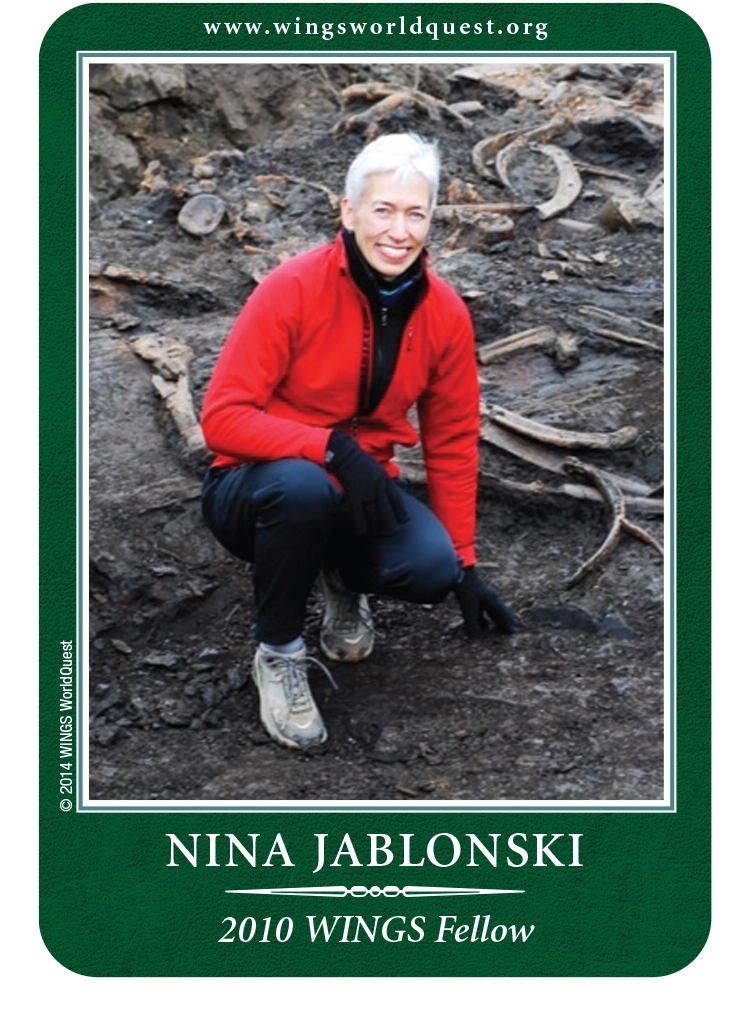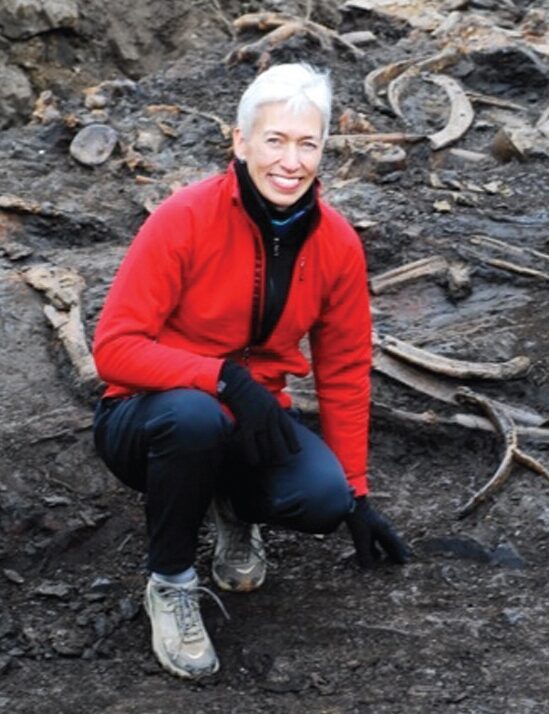nina jablonski
Inspired to study natural history by her upbringing on a farm in upstate New York, Nina Jablonski is a biological anthropologist and paleobiologist studying primate and human evolution, particularly adaptations to the environment. Most recently the Atherton Professor and Evan Pugh University Professor of Anthropology Emerita at Pennsylvania State University, she has focused her research on four major areas: the evolution of Old World monkeys; human adaptations to the environment, including the evolution of human skin and skin pigmentation; the history and social consequences of skin color-based race concepts; and youth science education, especially human evolution and human physical diversity.
Jablonski chose to pursue an undergraduate degree in biology at Bryn Mawr College, concentrating on the then-nascent field of molecular biology. She then elected to attend The University of Washington to receive a graduate degree in biological anthropology. Her Ph.D. work took her to Hong Kong where she continued her research and eventually started studying the evolution of Old World monkeys in East Asia in the late 1980s. In 2010 she earned a doctorate in philosophy, honoris causa, from Stellenbosch University. She has continued working with Stellenbosch University by leading a major new scholarly initiative titled “Effects of Race” aimed at studying the effects of race in South African society.
Named a 2023 Distinguished Daughter of Pennsylvania and recipient of the California Academy of Sciences’ 2023 Fellows Medal, Jablonski is passionate about sharing her knowledge and helping gain interest in STEM fields for younger generations. She is currently collaborating on the development of new approaches to science education in the United States. These approaches have the dual aims of improving the understanding of evolution and human diversity, and stimulating interest among students in pursuing STEM courses and careers.

Born: 1953
Hometown: Buffalo, NY
Education: Ph.D. in Anthropology
Occupation: Anthropologist, paleontologist, university professor
Expeditions: Paleontological field expeditions to China, Nepal, Pakistan, Kenya, and Tanzania
Favorite Place: A safe place
Best Discoveries: The first fossil chimpanzee, found in a collection of monkey fossils in a museum! That skin pigmentation is an evolutionary compromise between protection of the body against UV rays and production of an essential vitamin made possible by UV rays
Favorite Item In The Field: Clean drinking water
Personal Hero: Martin Luther King, Jr.
Hobbies: Reading, jogging, watching wildlife
Book: Skin: A Natural History
Website: http://anth.la.psu.edu/people/ngj2
Advice: Don’t work for recognition. Do the work you love to the best of your ability and recognition will flow naturally to you.
